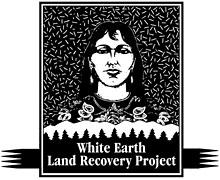Minnesota Fair Trade Wild Rice

Wedge Co-op in Minneapolis launched its new Fair Trade program in May 2003, making it one of the first domestic fair trade buying programs in the country. In an era when family and independent farms are suffering, The Wedge created this program in order to get more money flowing toward small, local growers. These farmers grow top-quality products, but they can't compete with the agribusiness flood coming out of California, Texas, and Florida.
The Wedge could not have a better initial fair trade partner than Native Harvest, the brand name of the White Earth Land Recovery Project of Ponsford, Minnesota. Their wild rice is hand-harvested by native ricers in the ancient method of skimming through the lakes of northern Minnesota in boats, so there's no way these harvesters could compete with factory-sized patty rice farmers who monopolize the market with genetically modified rice, industrial harvesters, and liberal use of fungicides. Worse, the University of Minnesota is attempting to patent the wild rice genome, which officials of the Minnesota Chippewa Tribe see as an infringement on their treaty rights. The White Earth Land Recovery Project (WELRP) is a diligent group dedicated to maintaining the sustainability and diversity of their ancient rice beds, and the Wedge Fair Trade contract is made possible by their dedication to these principles.
In this Fair Trade contract, the Wedge pays $.30 more per pound for wild rice for one year, and in turn, the WELRP will provide documentation about their efforts to combat the proliferation of GMO's and industrialized paddy rice on reservation land. They will also provide records describing WELRP's campaign to prevent exploitation of the wild rice genome. Meanwhile, the Wedge agrees not to pass that higher price on to our shoppers and to market Native Harvest rice aggressively.
What does the Wedge gain from this contract? Fair Trade is not about making money for the store-that's obvious. But we do benefit from the great privilege of having a closer relationship with WELRP and from offering them a hand in their vital task of maintaining an ancient cultural way of life. Our members benefit by knowing that their dollars are flowing toward an organization that takes very seriously the issues of sustainability, economic justice, and providing top-quality product.
In a way, this Fair Trade program was a logical step after the advent of The USDA Organic Rule. That law was a triumph for organic shoppers because it codified organic standards on the national level. But for many shoppers, organic farming couldn't answer every food and farming concern. What about labor practices, for example? Or sustainability (are organic melons from the desert really better for the environment)? Or local versus international products? The organic label was never really equipped to address such concerns.
Fair Trade has earned a great reputation as a force for economic justice. Groups in the U.S. and Europe began buying coffee from small, indigenous coffee cooperatives, aiming money toward impoverished regions of the globe rather than putting more cash into the coffers of big coffee business. Now, consumers can buy coffee, tea, and chocolate from around the world, knowing that their dollars are supporting responsible labor, environmental, and farming practices.
The idea behind domestic Fair Trade is almost identical to its international cousin. After all, the same issues are at stake here in the States: The disparity between big corporate and small independent farms, the economic split between urban and rural regions, California versus local product, even the gulf between indigenous and white growers demands creative thinking for the American grocery shopper's purchasing power. Wedge Fair Trade is designed to give customers more choice and better product. We seek out agricultural producers who provide a good wage to workers, who grow sustainably (they may or may not be certified organic), and who operate within an eight-hour drive of our store. Most importantly, customers get great food for their dollar.
Right now, Native Harvest wild rice is the only product that bears the Wedge Fair Trade label. But as we find more trading partners, our blue-and-white sticker will appear on key products in other departments. Shoppers who seek out that label will know that The Wedge considers these products and their growers to be special trading partners, so much so that we're willing to enter into a Fair Trade contract with them. Furthermore, shoppers will know that a representative of the Wedge has visited the operation personally.
The seventh principle of cooperation, "Concern for Community," suggests that as cooperators we link we farms and growers close to home. The Wedge hopes that our new Fair Trade label will help members make even better choices when shopping at the co-op.
Editor's note: A Minnesota coalition, the Domestic Fair Trade Group-representing small farms, food co-ops, fair trade vendors, and organizations with related missions-recently announced their aim to lay the groundwork for a domestic fair trade system.







